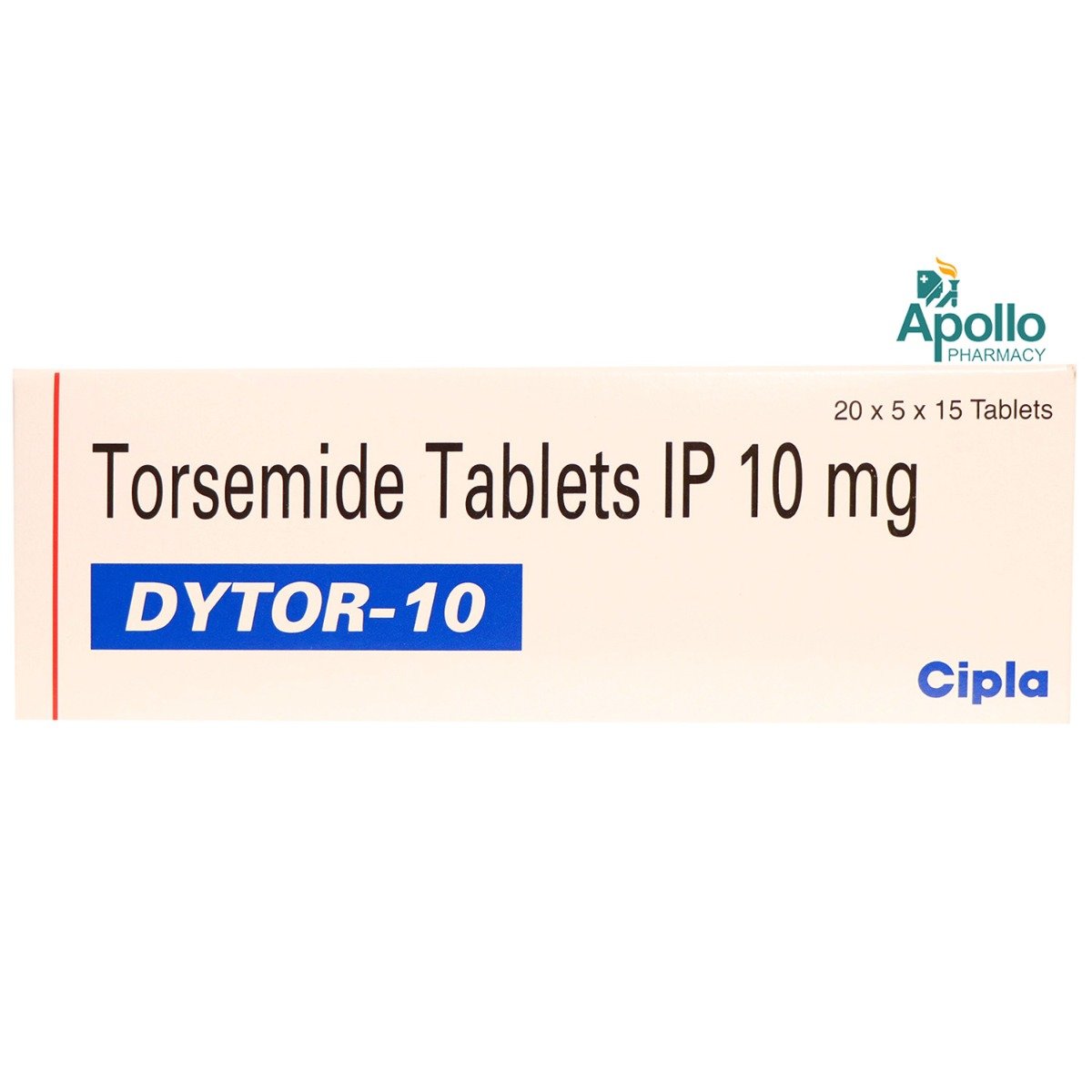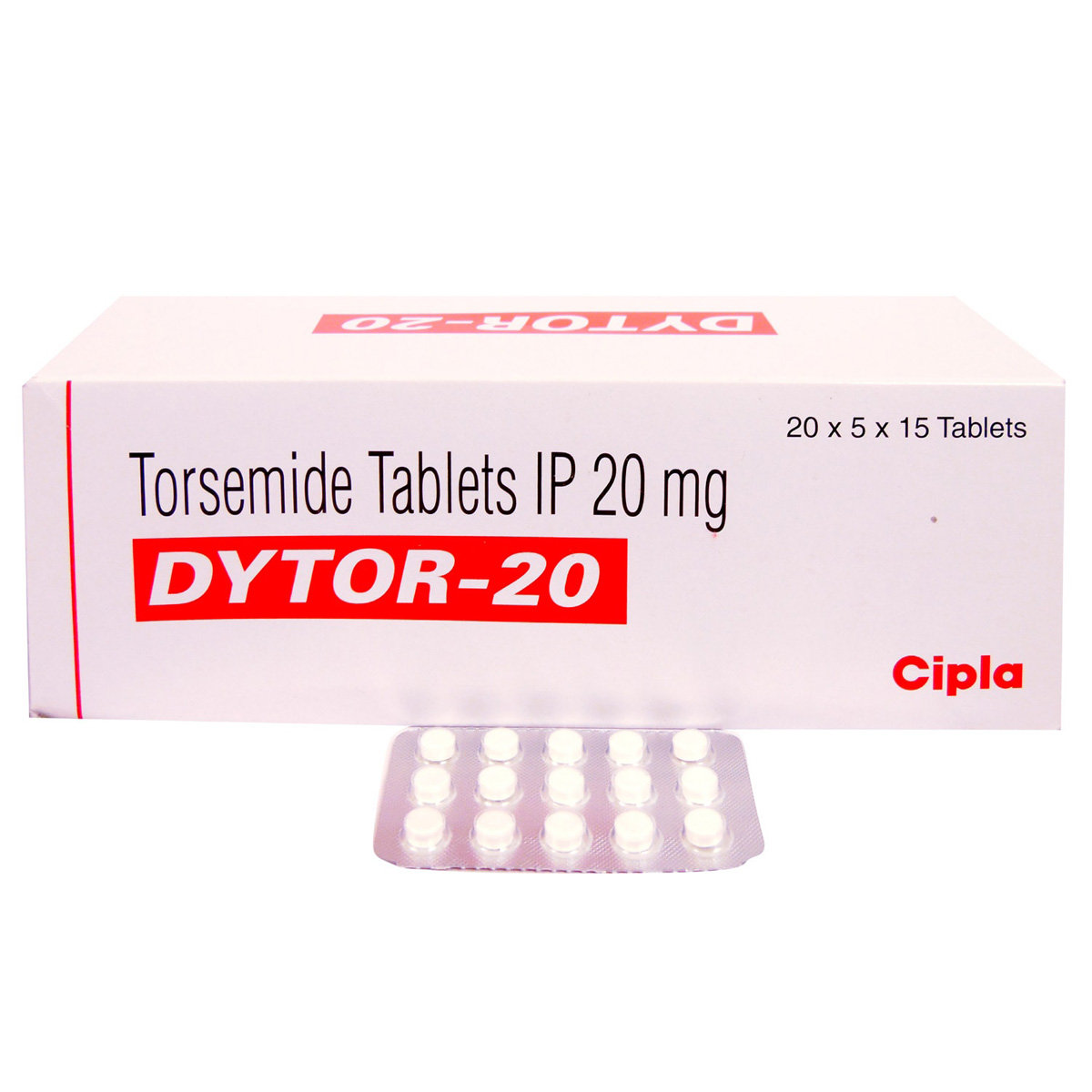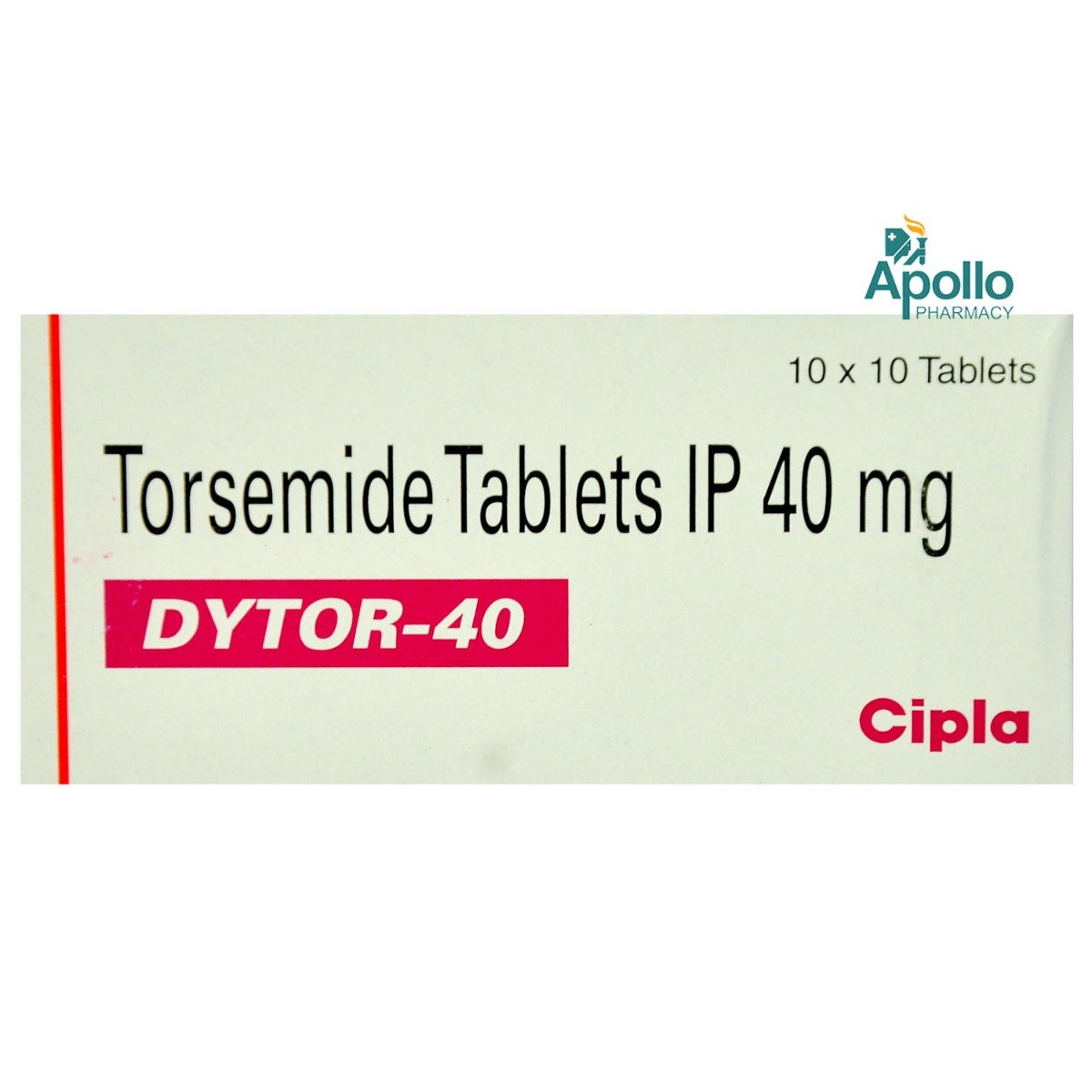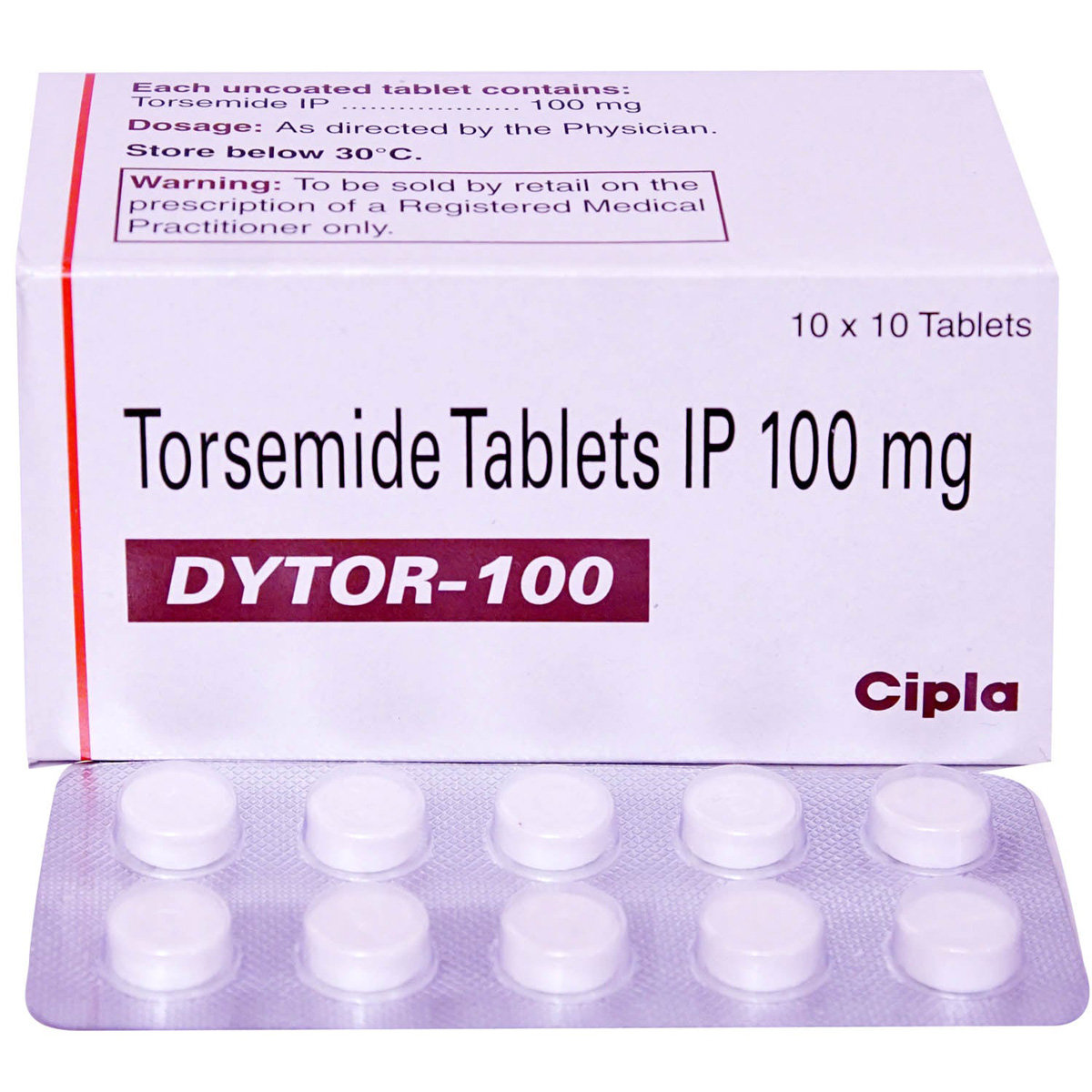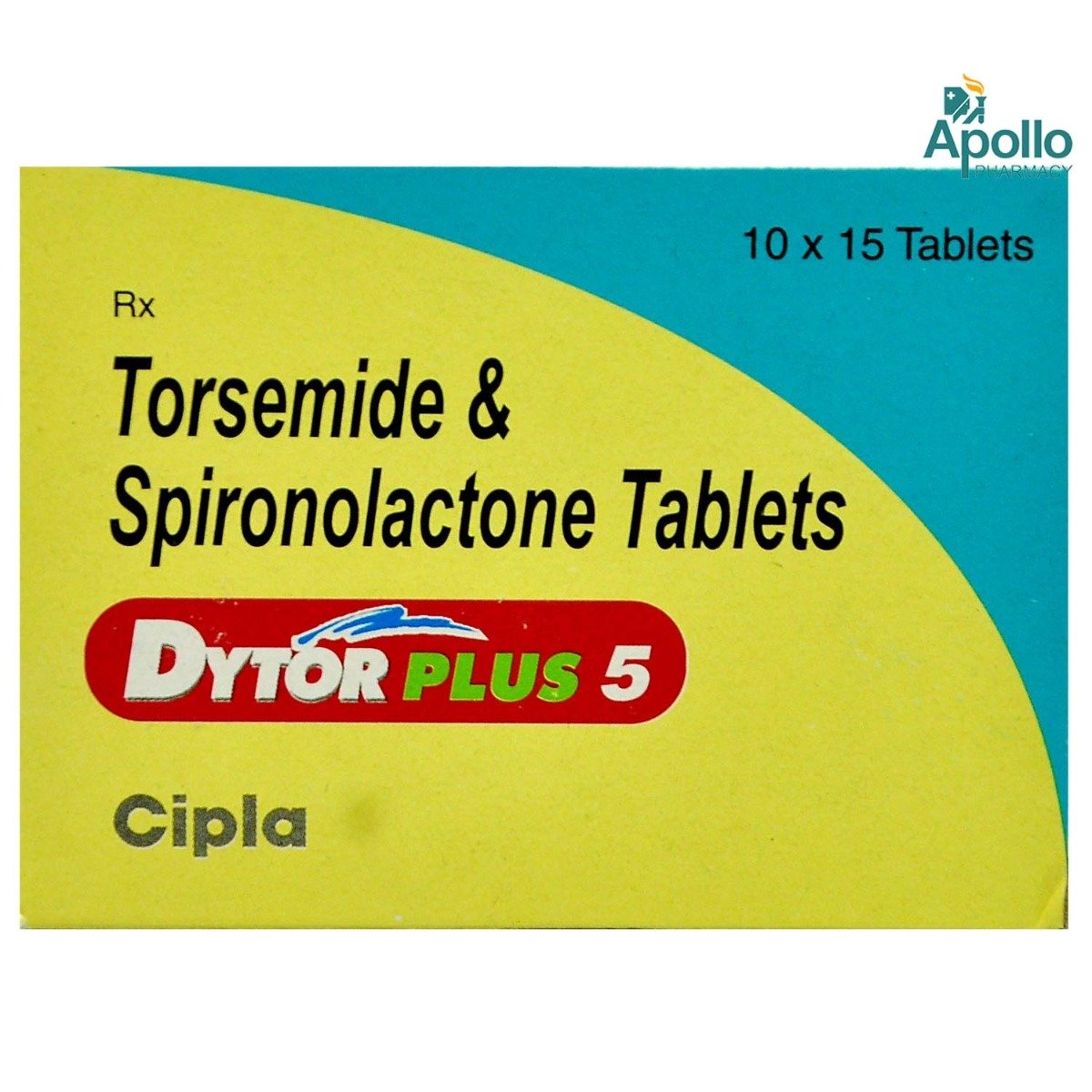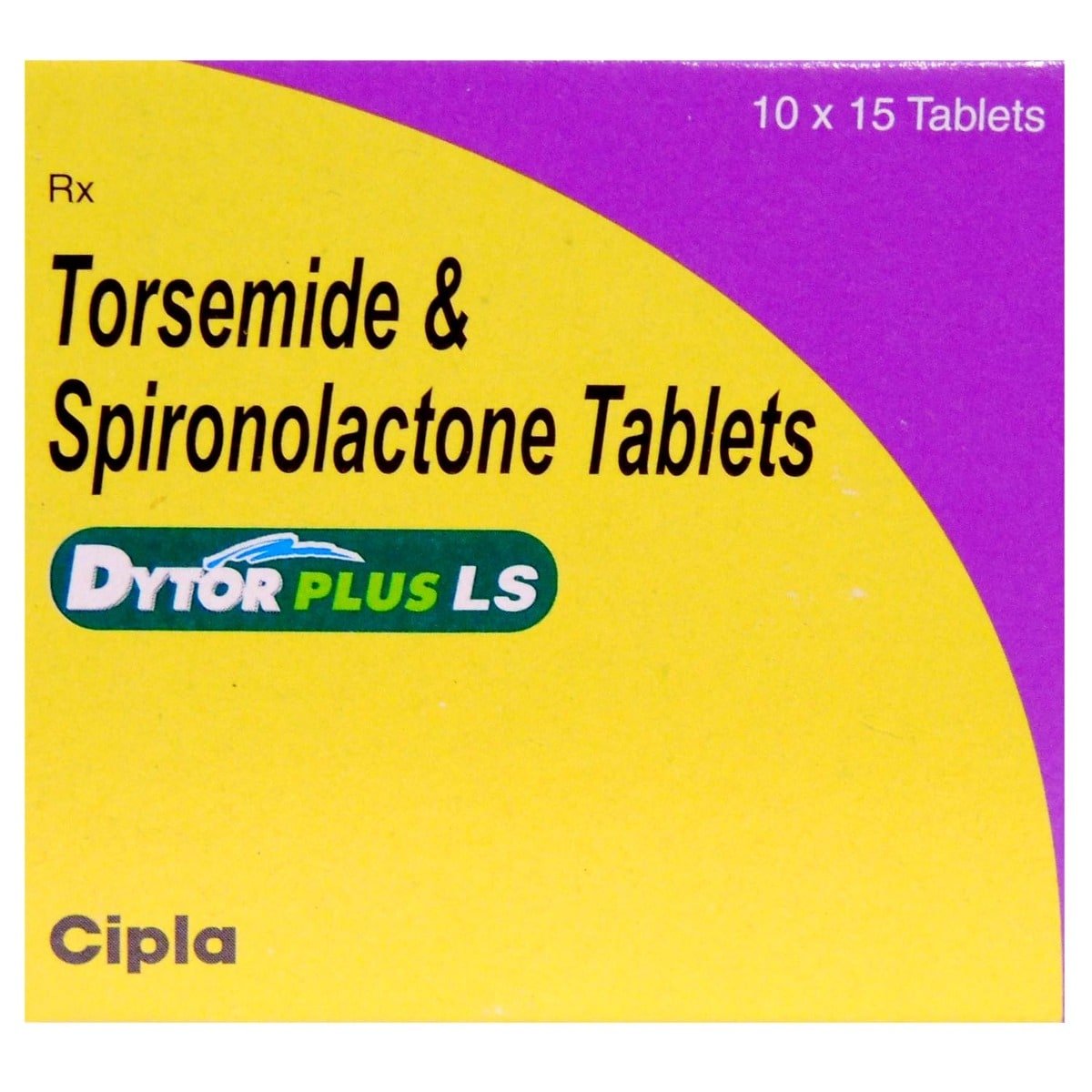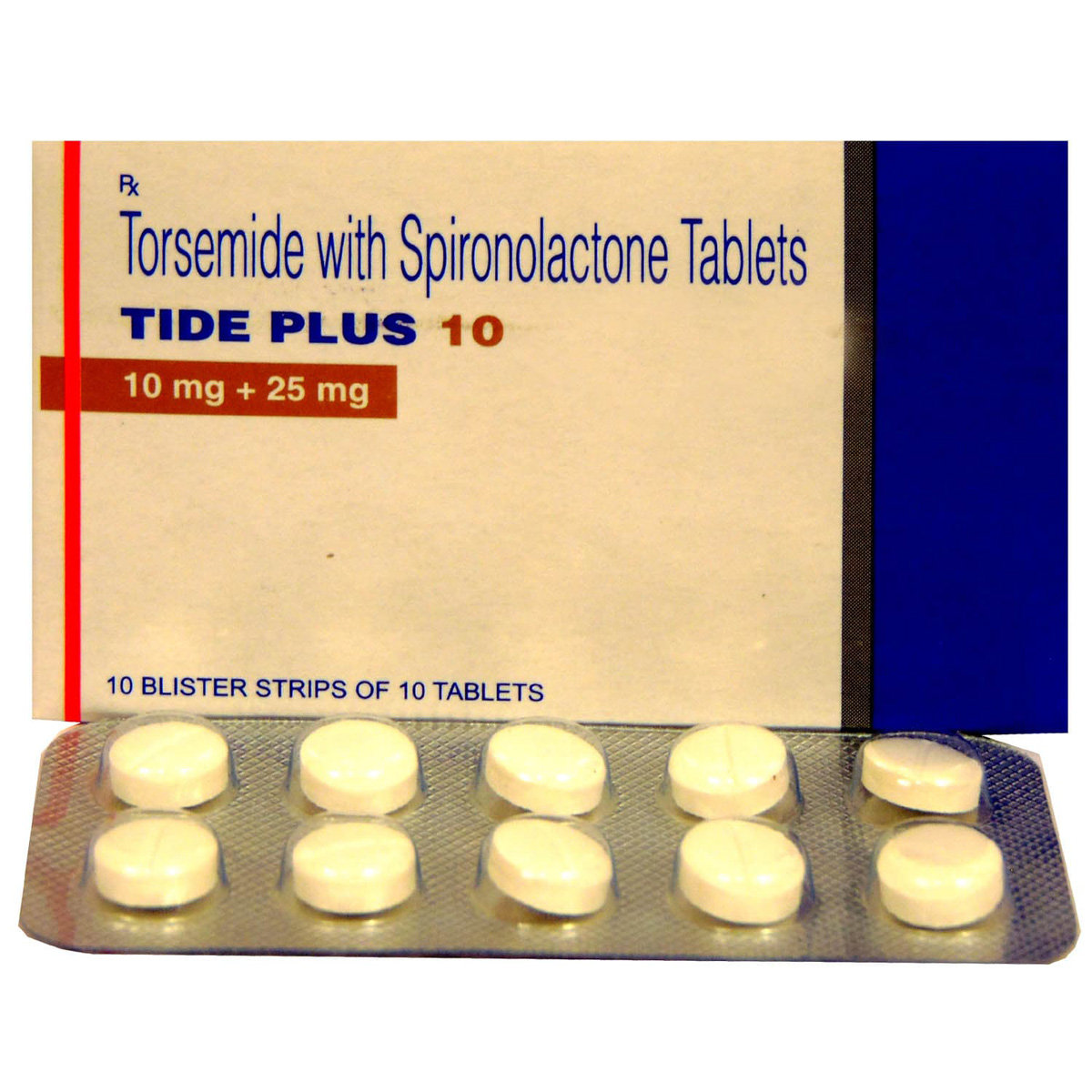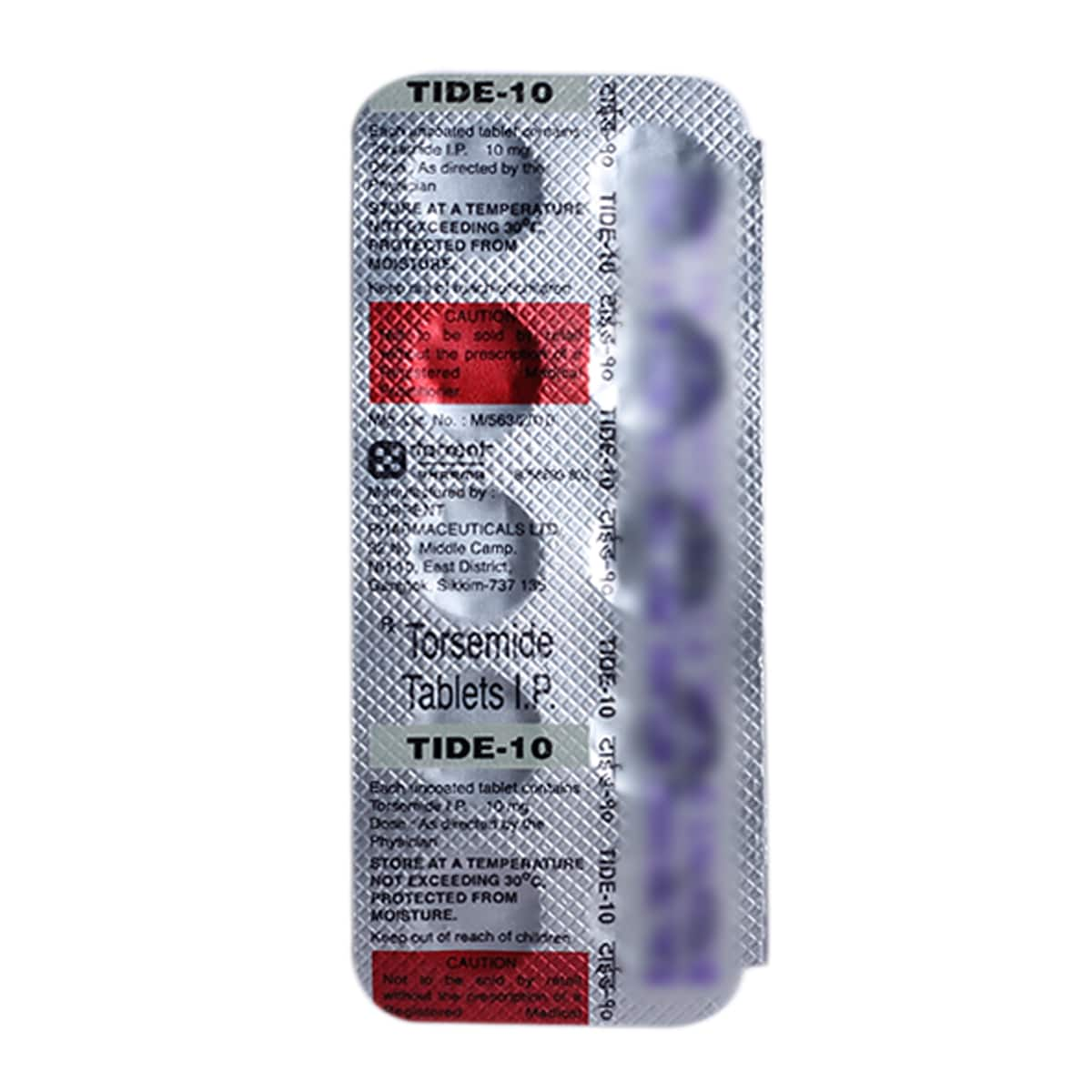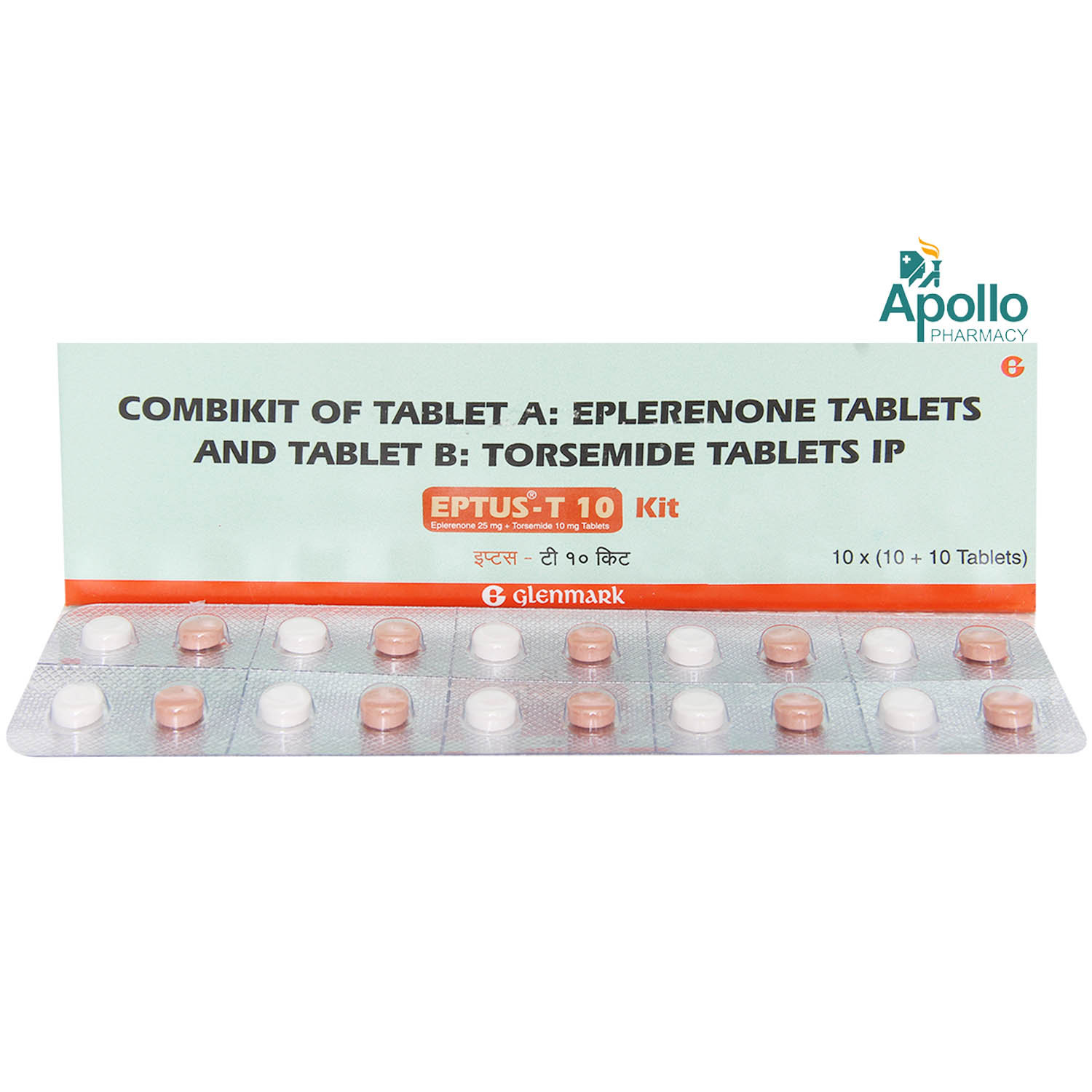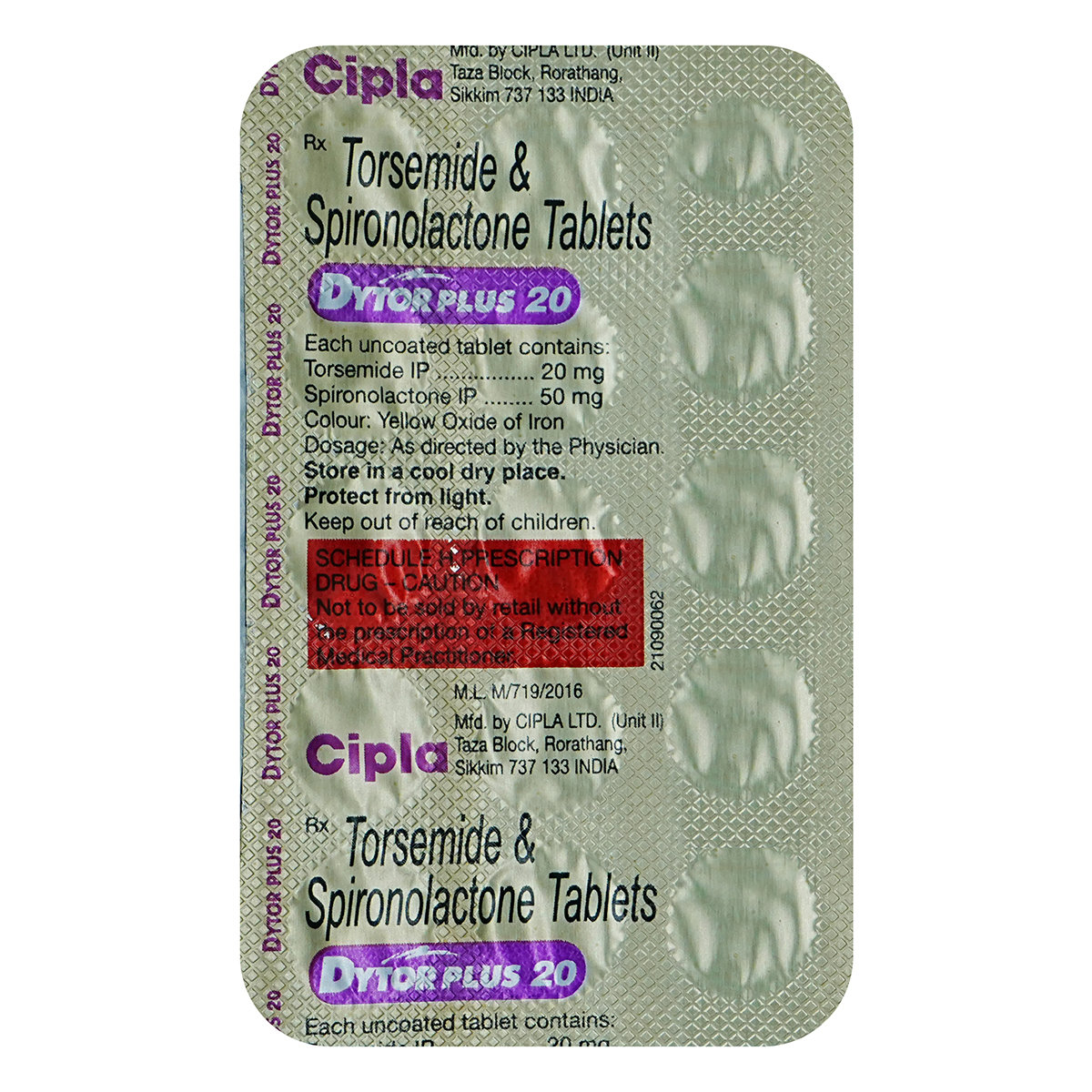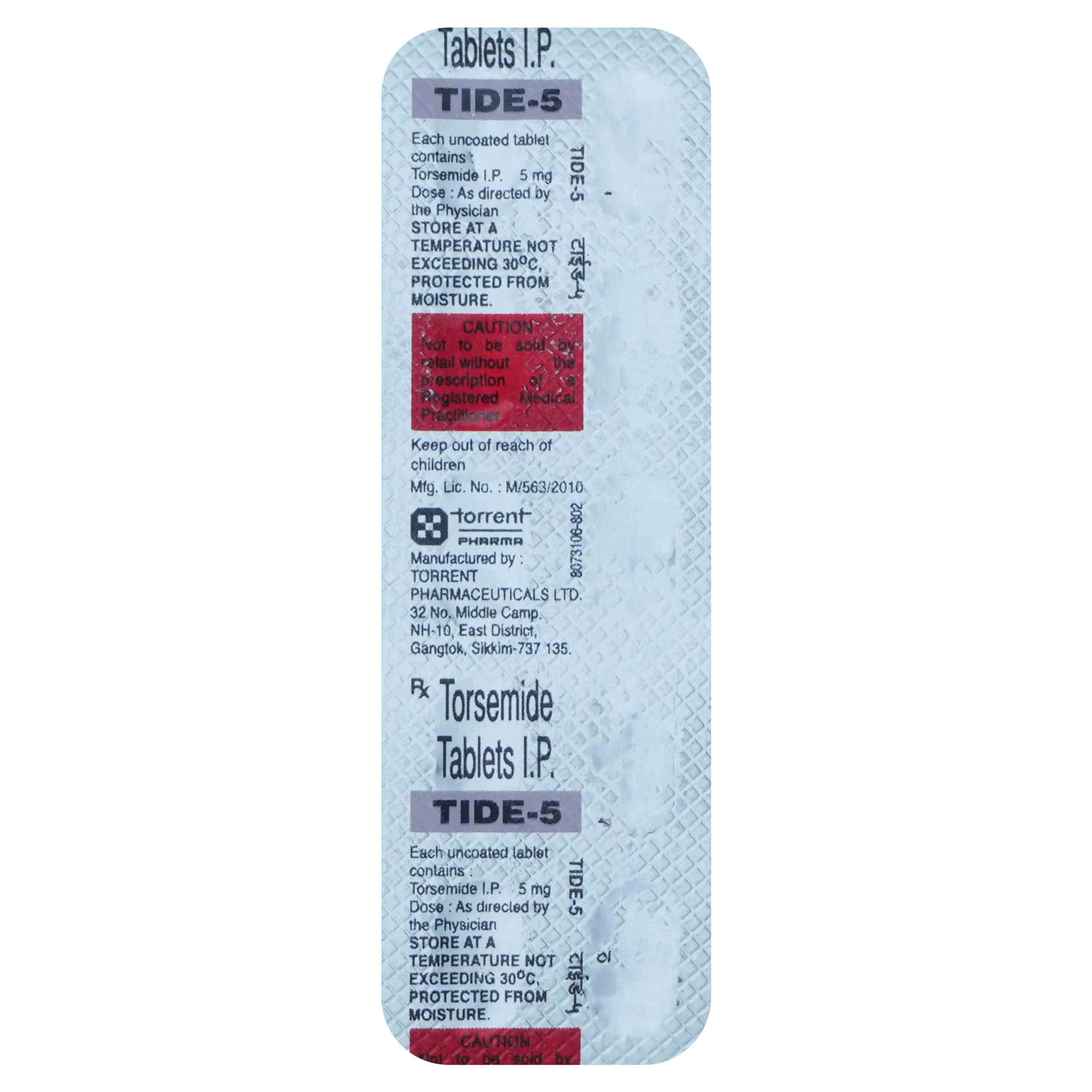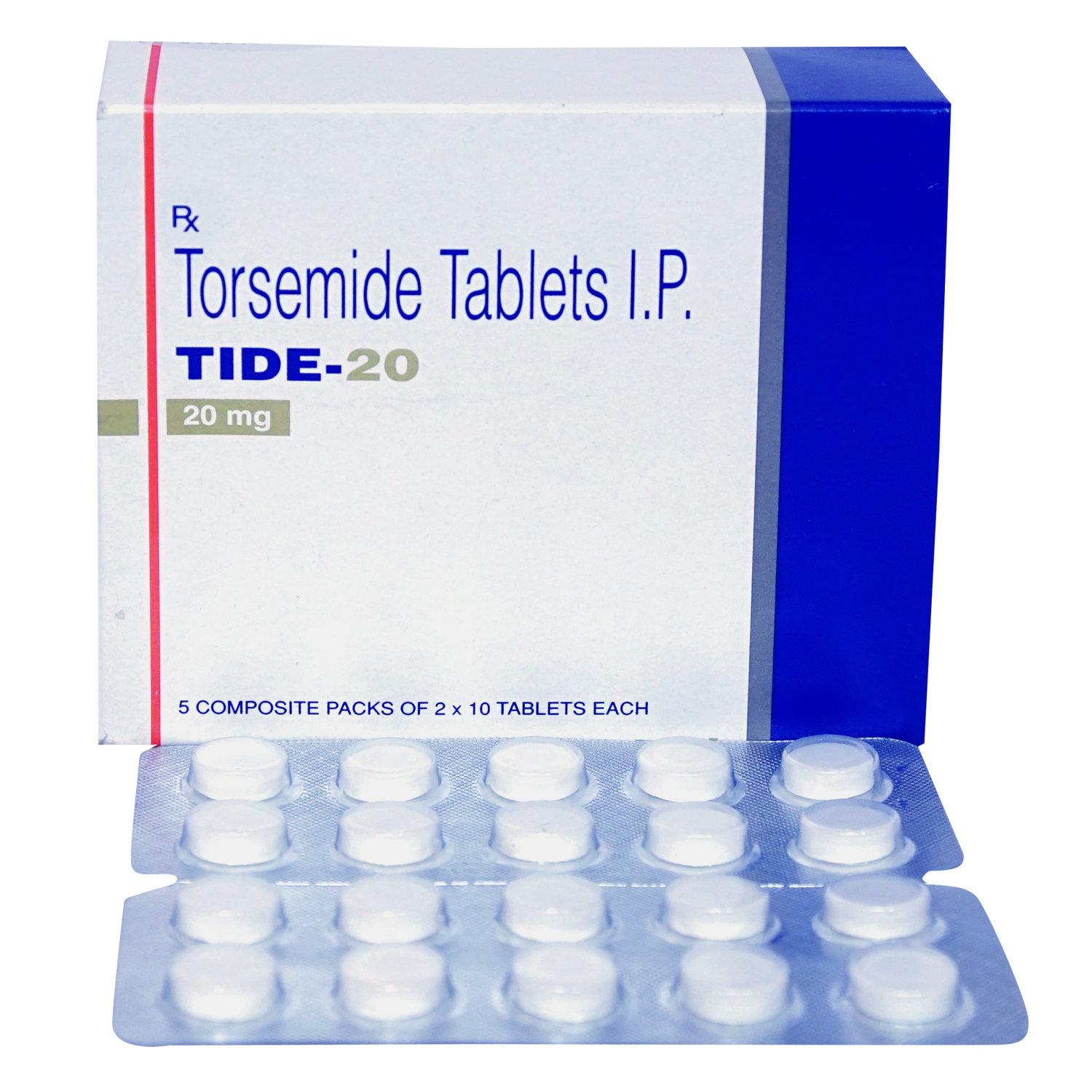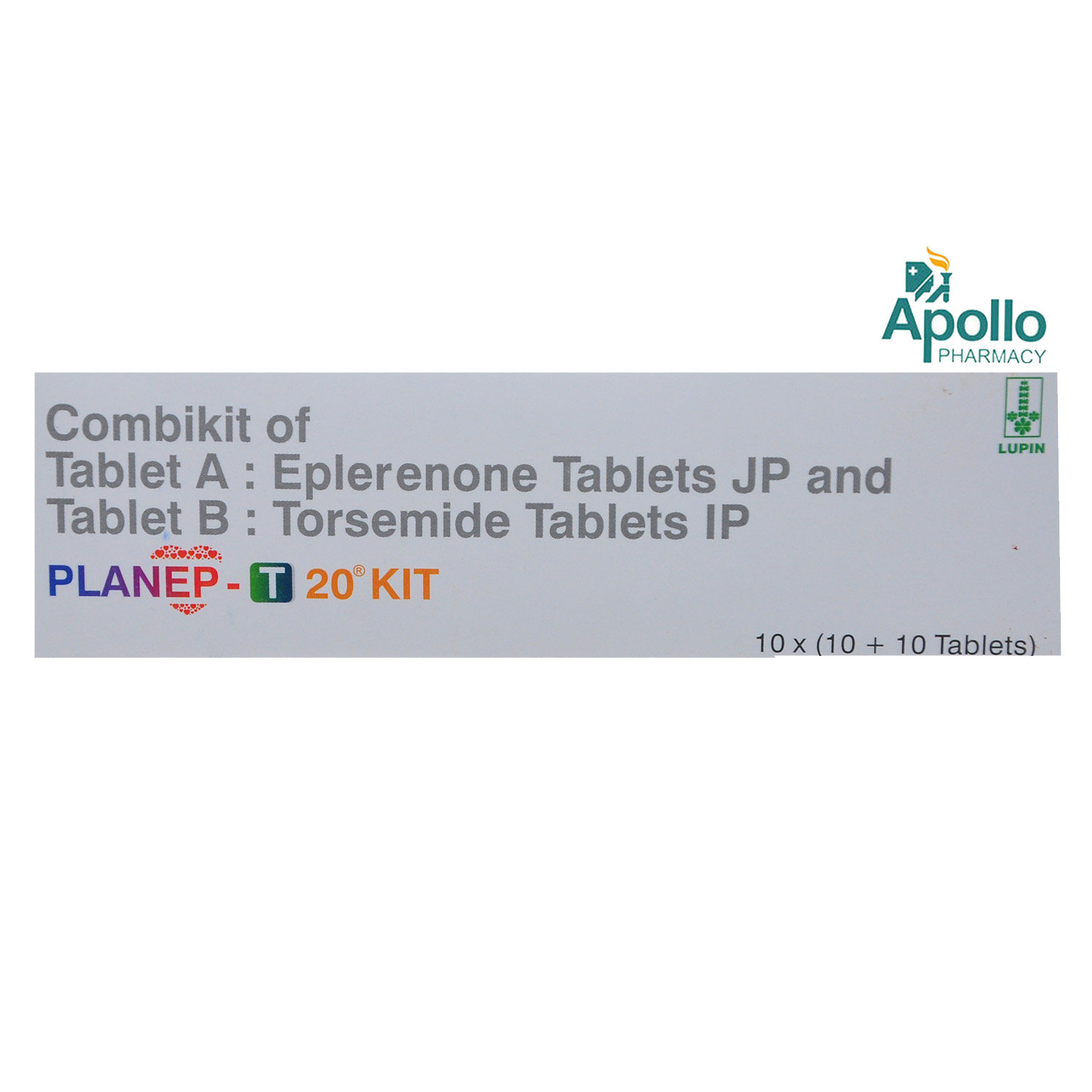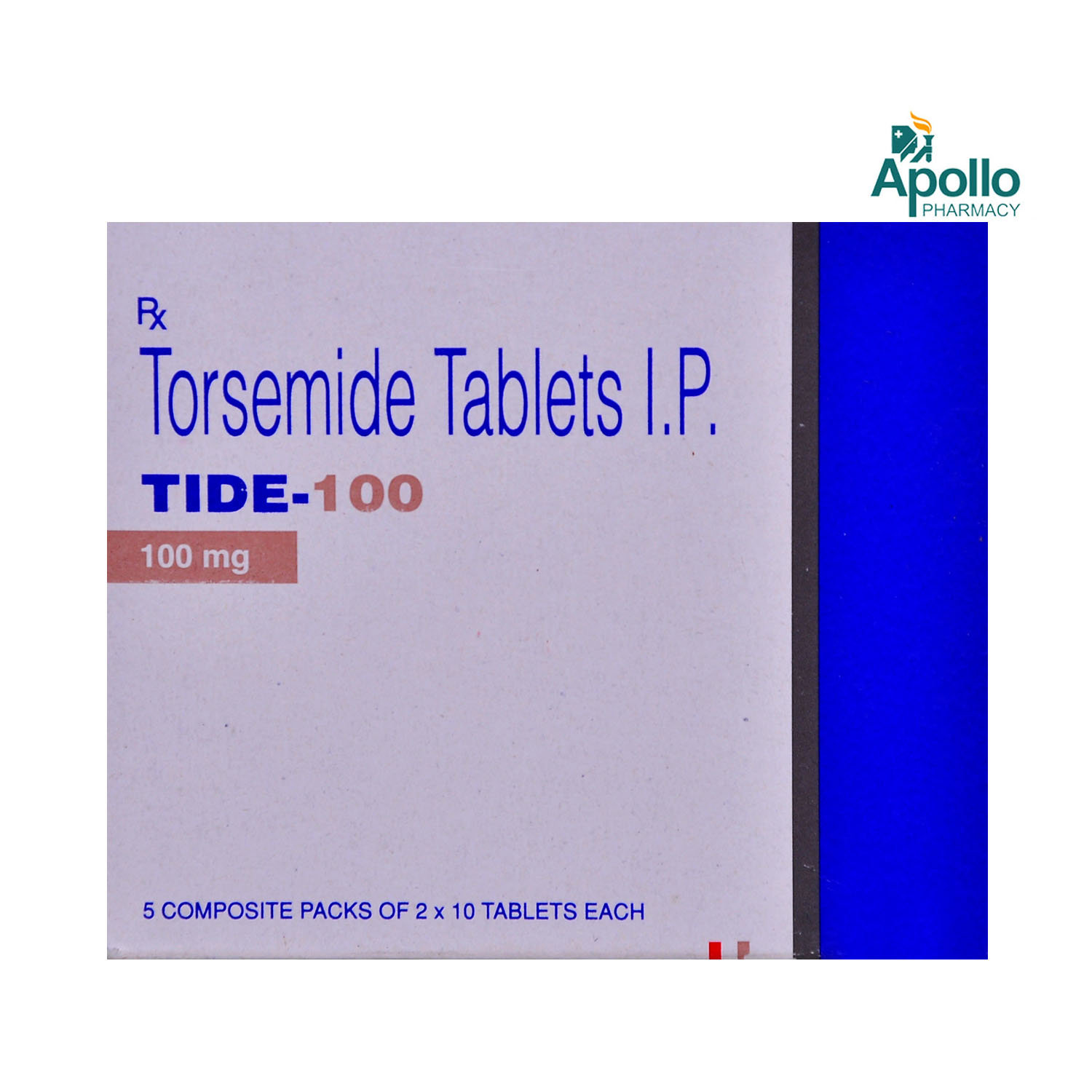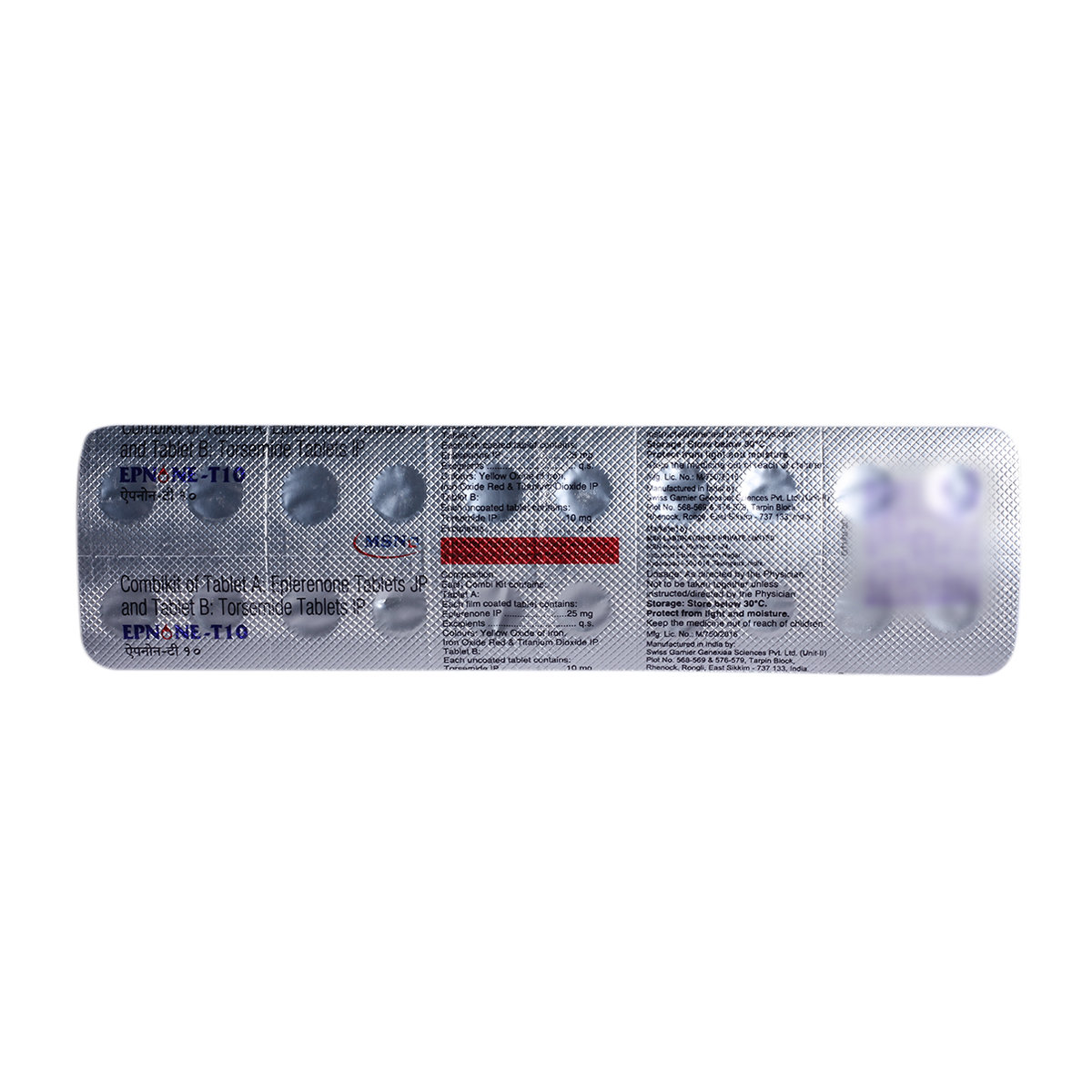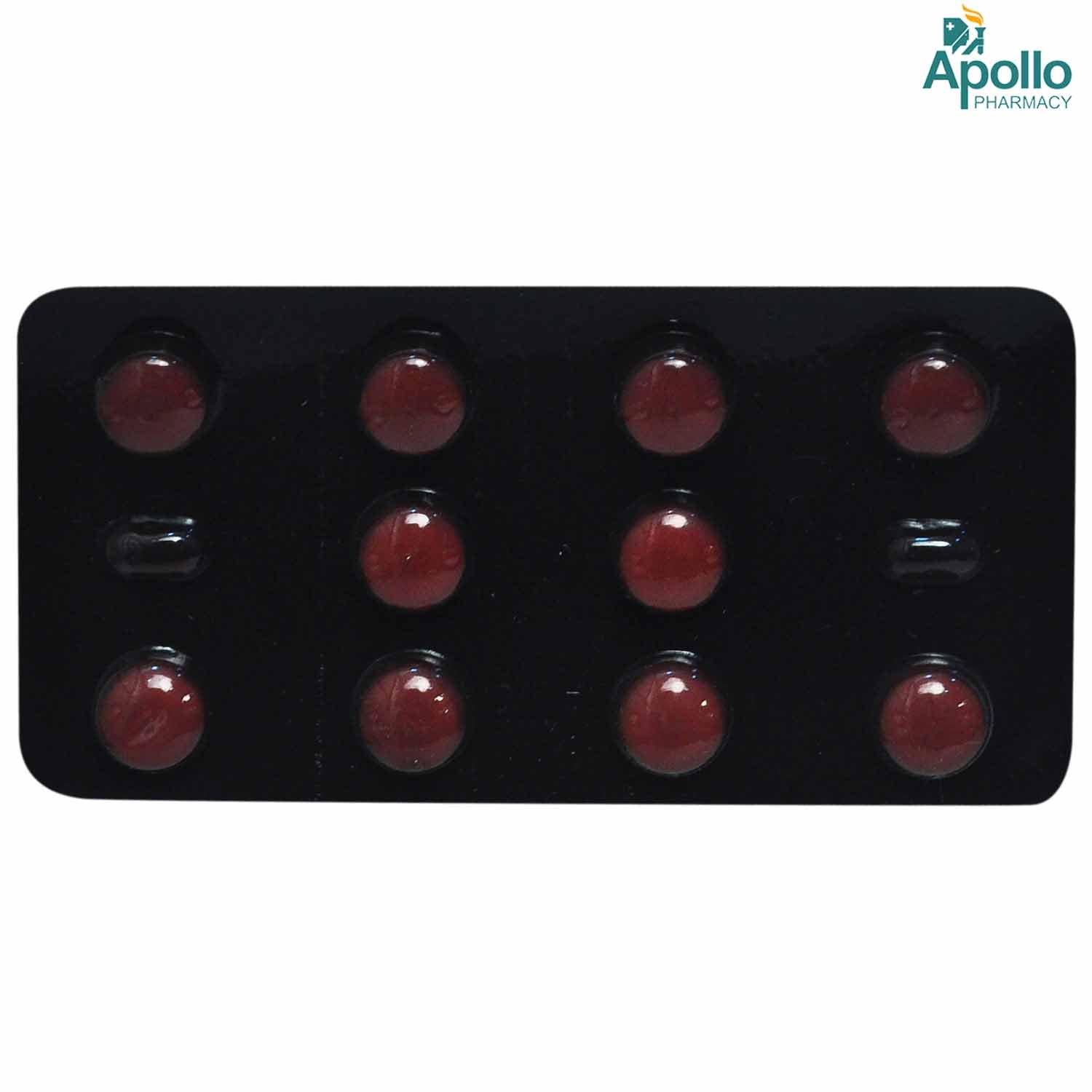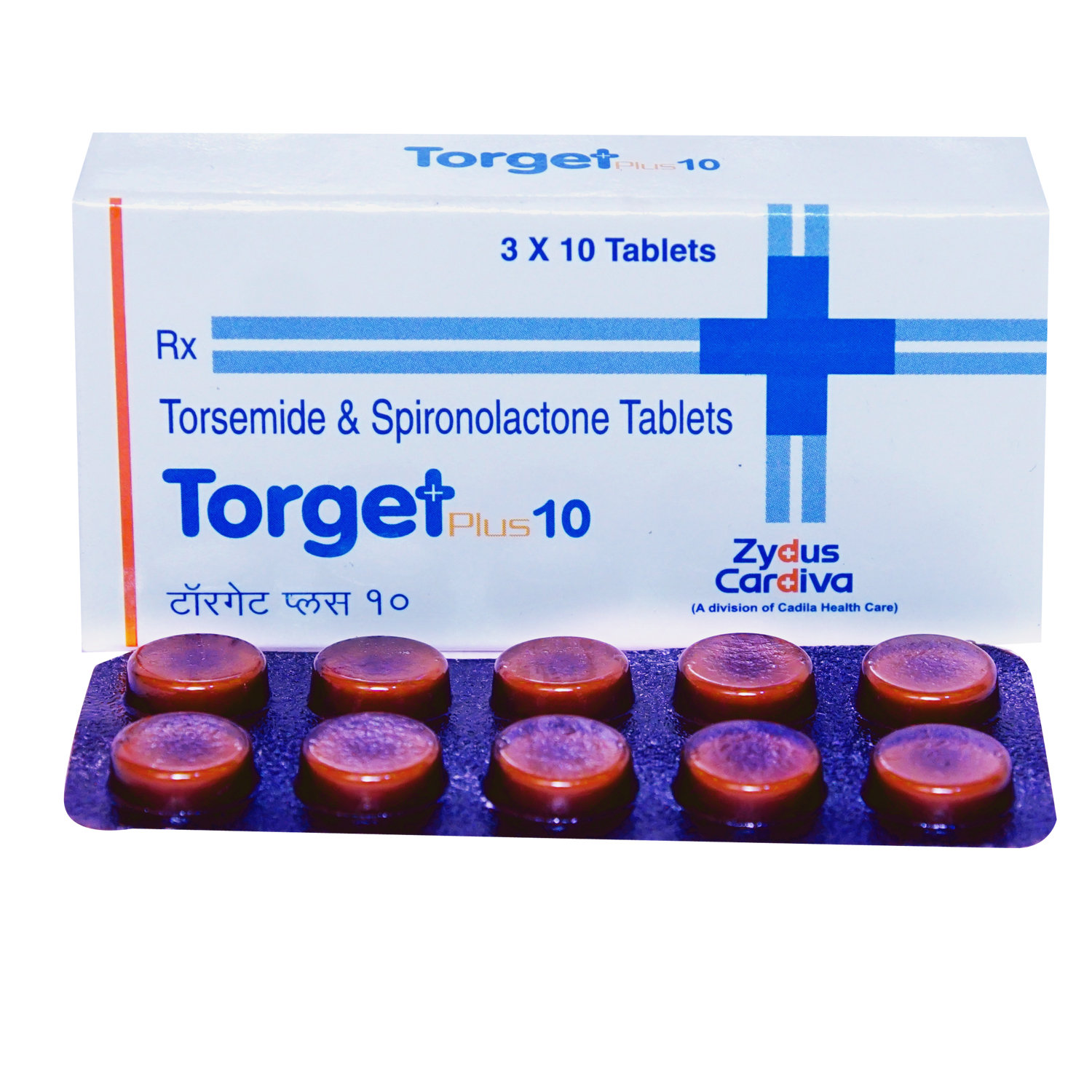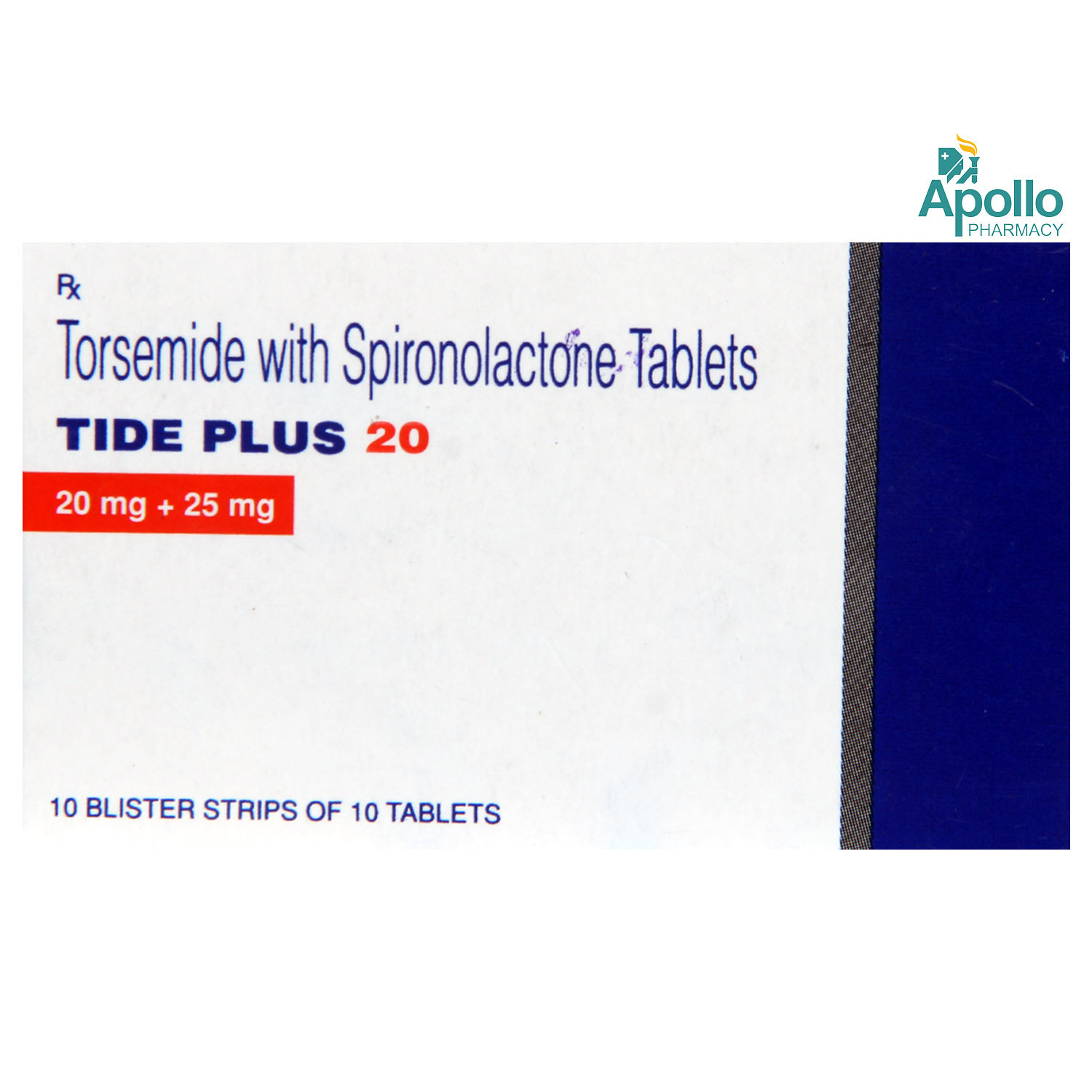Torsemide
About Torsemide
Torsemide is used to treat high blood pressure and oedema (a build-up of fluid in the body). Hypertension means having high blood pressure. High blood pressure can cause fluid buildup, leading to swelling in the hands, feet, and legs.
Torsemide contains torsemide, which helps the kidneys remove extra fluid through urine and reduces swelling caused by heart, liver, kidney, or lung problems.
In some cases, you may experience certain common side effects such as dehydration, nausea, dizziness, muscle cramps, or weak muscles. Most of these side effects do not require medical attention. However, talk to your doctor if you experience these side effects persistently.
Avoid taking Torsemide if you are allergic to it. Do not stop taking Torsemide without advice, as it can raise blood pressure and increase heart or stroke risk. Inform your doctor if you are suffering from kidney, liver, or heart disease. If you are pregnant or breastfeeding, please tell your doctor.
Uses of Torsemide
Medicinal Benefits
- Torsemide belongs to a group of medicines called loop diuretics, used to treat high blood pressure and oedema (a build-up of fluid in the body).
- Torsemide contains torsemide, which works by increasing the amount of urine that is passed out from the kidneys.
- It effectively reduces excess fluid levels in the body and treats oedema (swelling) associated with heart, liver, kidney, or lung disease.
- Torsemide also reduces the workload on the heart and makes the heart more efficient at pumping blood throughout the body.
- Thus, it helps to lower high blood pressure, reducing the chances of a heart attack or stroke.
Directions for Use
- Torsemide can be taken with or without food.
- It is usually taken once daily in the morning, preferably at the same time each day, or as advised by your doctor.
- Swallow Torsemide as a whole with a glass of water.
- Do not break, chew, or crush it.
Storage
Side Effects of Torsemide
- Hypotension (low blood pressure)
- Dehydration
- Headache
- Dizziness
- Muscle cramps
- Nausea
- Vomiting
- A fast or irregular heartbeat
- Reduced levels of potassium, and magnesium in your blood.
Medicines Containing this Salt
View AllDrug Warnings
- Do not take Torsemide if you are allergic to any of its components.
- Inform the doctor if you have low blood pressure (less than 90 mm Hg), have a history of heart attack, kidney disease, liver disease, diabetes, cardiogenic shock (sudden stopping of blood flow to the heart), or aortic stenosis (heart valve problem).
- If you experience sudden wheeziness, tightness in the chest or throat, difficulty breathing, swelling of the eyelids, face or lips, rash or itching (especially affecting your whole body), inform your doctor immediately.
- Consult the doctor if you are pregnant or breastfeeding.
- Torsemide is not recommended for use in children below 16 years of age.
- Do not stop taking Torsemide on your own, as it may cause a rise in blood pressure and can increase the risk of heart disease and stroke.
Drug Interactions
Drug-Drug Interaction: Inform the doctor if you are taking medicines to treat irregular heartbeats (amiodarone, digoxin, disopyramide, flecainide, and sotalol), medicines that can change the level of potassium in your blood, such as potassium supplements, steroids, or other diuretics; medicines used to treat mental health problems (amisulpride, lithium, pimozide, risperidone), non-steroidal anti-inflammatory drugs (NSAIDs) (diclofenac, ibuprofen, naproxen), medicines that treat high blood pressure, and medicine used to treat ulcers (sucralfate).
Drug-Food Interaction: You are recommended not to consume alcohol along with Torsemide to avoid unpleasant side effects.
Drug-Disease Interaction: Inform the doctor if you have low blood pressure (hypotension), renal dysfunction (kidney diseases), cirrhosis (liver disease), diabetes(increased blood sugar levels), hyperuricemia (gout), low serum potassium (hypokalemia), patients with nil urine output (anuria), and other cardiovascular diseases.
Drug-Drug Interactions Checker List:
Safety Advice

Alcohol
unsafeConsumption of alcohol should be avoided during treatment with Torsemide as it can cause undesirable side effects.

Pregnancy
consult your doctorTorsemide should not be used in pregnant women unless necessary. Hence, consult your doctor if you are pregnant or planning a pregnancy.

Breast Feeding
consult your doctorTorsemide should not be used in nursing mothers unless clearly necessary. Hence, consult your doctor if you are a breastfeeding mother.

Driving
unsafeIt is not recommended to drive vehicles after taking Torsemide as it may cause drowsiness or dizziness.

Liver
cautionTorsemide should be used with caution if you have a history of liver disease, as sudden changes in electrolyte imbalance can cause hepatic coma.

Kidney
cautionTorsemide to be used with caution, especially if you have a history of kidney disease. Dose adjustment may be done by your physician depending upon your current kidney conditions.

Children
unsafeTorsemide is not recommended for use in children below 16 years of age as the safety and efficacy for this medicine is not established.
Habit Forming
Diet & Lifestyle Advise
- Maintain your weight under control with a BMI of 19.5-24.9.
- Doing regular physical activity or exercise for at least 150 minutes per week, or about 30 minutes most days of the week can help lower your raised blood pressure by about 5 mm of Hg.
- Prefer eating a diet rich in whole grains, fruits, veggies, and low-fat dairy products.
- Limit intake of sodium chloride (table salt) in your daily diet to 2300 mg per day. This helps relieve the swelling of the body.
- Avoid alcohol consumption, as it can cause undesirable side effects.
- Quitting smoking is the best strategy to lower the risk of heart disease.
- Avoid chronic stress, as it can raise your blood pressure. Try to enjoy and spend time with your loved ones to cope with stress and practice mindfulness techniques.
- Monitor your blood pressure daily, and if there is too much fluctuation, contact your doctor immediately.
- Try to include heart-healthy omega-3 fatty acids-containing foods in your daily diet. You can also use low-fat cooking oil like olive oil, soybean oil, canola oil, and coconut oil can help in lowering your elevated blood pressure.
Special Advise
Patients Concern
Disease/Condition Glossary
Hypertension: It is a chronic condition wherein the blood pressure increases, resulting in decreased blood and oxygen flow to the heart. Raised blood pressure can lead to angina (chest pain) and a heart attack (when the blood supply to the heart is blocked). Additionally, high blood pressure also causes brain damage (stroke) and kidney failure. High blood pressure can be diagnosed with the help of a blood pressure monitor or sphygmomanometer. Ideal blood pressure is around 120/80 mm of Hg.
Oedema: is a condition in which there is an excess of fluid in certain parts of the body (mainly ankles, feet, and legs), causing inflammation. It can occur due to various reasons, such as sitting for long periods or being overweight.
FAQs
Torsemide belongs to a group of medicines called loop diuretics, used to treat high blood pressure and oedema (a build-up of fluid in the body).
Torsemide works by increasing the amount of urine that is passed out from the kidneys.
Torsemide can be safely taken as long as your doctor has prescribed it to you. Conditions such as high blood pressure are lifelong conditions, and one should not abruptly discontinue them without consulting a doctor.
The side effects of Torsemide include headache, dehydration, low blood pressure, muscle cramps or weak muscles, fast or irregular heartbeat, and nausea or vomiting. If these side effects persist or worsen, please consult your doctor.
Take Torsemide as advised by the doctor. It can be taken with or without food. Swallow it as a whole with water. Do not break, crush or chew it. Take it preferably at the same time every day. It is essential to stay on a diet and exercise program as recommended by your doctor.
No, do not stop taking Torsemide without consulting your doctor, as discontinuing suddenly can lead to a sudden increase in your blood glucose levels. Therefore, take Torsemide as per the dose and duration advised by the doctor.
Yes, Torsemide can be used alone or in combination with other diabetes medicines. However, in addition to medications, a proper diet and exercise should be followed.
Torsemide alone does not cause very low blood sugar. However, if Torsemide is taken along with other diabetes medications such as insulin, meglitinides or sulfonylurea, look out for hypoglycaemia.
Your doctor may recommend an HbA1c test every 3 months. This test is done to evaluate your blood sugar control during the last 2-3 months.
Taking furosemide with Torsemide may result in excessive fluid loss, and you may experience dizziness upon standing, unusual thirst, fainting, loss of consciousness and lightheadedness. Therefore, you are recommended to consult your doctor before taking Torsemide with furosemide or other medicines.
